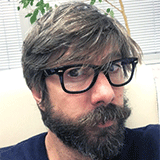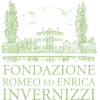Innovative three-dimensional (3D) biotechnologies for regenerative medicine and immune-oncology
The experimental activity of the Regenerative Medicine laboratory (RML), involves the development and validation of patient-specific 3D physiological models, for the in-depth study of the molecular and epigenetic mechanisms responsible for the onset and progression of cardiovascular and oncological pathologies. To this end, our laboratory has developed several types of in vitro 3D cultures over the past decade, including advanced models such as organ-on-chip and microfluidic, organoid and mini-organ models for the development and translational investigation of new therapies oncological or for regenerative applications. Employment of our technologies including 3D culture, microfluidic systems and 3D bioprinting has highlighted the key role of biophysical, biochemical and environmental factors in identifying relevant criteria to aid planning and/or development of advanced in vitro methods.
The experimental activity has recently been integrated with advanced programs of reconstructive medicine and three-dimensional modeling, the focus of which is described in the development of cutting-edge technologies for the generation of patient-specific complex heterocellular tissues, supported by living and competent tubular endothelial networks.
In this context, the experimental activity aims to exploit the technological advances for the generation of patient-specific dynamic bioenvironments, supported by the manipulative capacity of induced pluripotent stem cells (iPSC) and immuno-competent organoids, integrated with customized biological sensors capable of develop Machine Learning (ML). Bioenvironments are made up of multicellular actors arranged topographically, in a Modulable Biological Environment (MBE), by extrusion 3D bioprinters (z-axis and core-shell technologies), which faithfully summarize the hierarchical histological characteristics of natural organs. The 3D models we develop are living functional representations, in vitro, of complex human organs or tissues, belonging to a specific person, on which to test innovative or experimental drugs or therapeutic approaches (personalized medicine).
KEYWORDs:
3d Bioprinting, Biomaterials, Biofabrication, iPSC, Organoids 2.0
Projects
- Engineered T lymphocytes (CAR-T) for the treatment of cardiac fibrosis in Duchenne muscular dystrophy
- Competent coronary vessel integrated into human 3D myocardium to unravel the epigenetic dynamics of Sars-CoV-2 infection in the heart
- Dynamic Immunomodulated Vascularized Patient-Specific Tumor Microenvironment
- Bioprintable decellularized cardiac extracellular matrix-derived hydrogel (DystroGel) for modeling the 3D microenvironment in Duchenne muscular dystrophy
- Magnetically Guided CD8+ T Lymphocytes in a 3D Tunable Environment (MBE) to Enhance Immune Response and Therapeutic Effects in Triple Negative Breast Cancer Organoids
- Generation of individual-specific tissues for the repair of damaged organs
- Dysfunctional role of SP1 post-translational modifications in human monocyte-derived dystrophic macrophages
- The role of microRNA-34 in the regulation of T-cell autoimmune response in depressive syndrome
Team
| Nome / Name | Ruolo / Role | |
|---|---|---|
| Claudia Bearzi | Ricercatore Senior | bearzi@ingm.org |
| Marika Milan | Post Doc | milan@ingm.org |
| Maria Grazia Ceraolo | Post-Doc | ceraolo@ingm.org |
| Maila Chirivì | PhD Student | chirivi@ingm.org |
| Salma Bousselmi | PhD Student | boussemi@ingm.org |
Publications
- The protein network in subcutaneous fat biopsies from patients with al amyloidosis: more than diagnosis?
Di Silvestre D, Brambilla F, Iavatelli F, Chirivì M, Canetti D, Bearzi C, Rizzi R, Bijzet J, Hazenberg BPC, Bellotti V, Gillmore JD, Mauri P.
Cells. 2023. 12(5):699. - Glucocorticoid receptor antagonization propels endogenous cardiomyocyte proliferation and cardiac regeneration.
Pianca N, Sacchi F, Umansky Kb, Chirivì M, Iommarini L, Da Pra S, Papa V, Bongiovanni C, Miano C, Pontis F, Braga L, Tassinari R, Pantano E, Patnala Rs, Mazzeschi M, Cenacchi G, Porcelli Am, Lauriola M, Ventura C, Giacca M, Rizzi R, Tzahor E, D’uva G
Nat cardiovasc res. 2022. 1:617-33. - The aba-lancl1/2 hormone-receptors system protects h9c2 cardiomyocytes from hypoxia-induced mitochondrial injury via an ampk- and no-mediated mechanism.
Spinelli S, Guida L, Vigliarolo T, Passalacqua M, Begani G, Magnone M, Sturla L, Benzi A, Ameri P, Lazzarini E, Bearzi C, Rizzi R, Zocchi E
Cells. 2022. 11(18):2888. - Biomimetic keratin-coated gold nanoparticles for photo-thermal therapy in a 3d bioprinted glioblastoma tumor model.
Chirivì M, Bearzi C, Rosa P, Miglietta S, Petronella F, De Falco E, Calogero A, Pani R, Petrozza V, Perotto G, Rizzi R, De Sio L.
Int. J. Mol. Sci. 2022. 23:9528. - Unusual association of nf-κb components in tumor-associated macrophages (tams) promotes hspg2-mediated immune-escaping mechanism in breast cancer.
De Paolis V, Maiullari F, Chirivì M, Milan M, Cordiglieri C, Pagano F, La Manna Ar, De Falco E, Bearzi C, Rizzi R*, Parisi* C.
Int. J. Mol. Sci. 2022. 23:7902. - Human platelet lysate derived extracellular vesicles enhance angiogenesis through mir-126.
Bordin A, Chirivì M, Pagano F, Milan M, Iuliano M, Scaccia E, Fortunato O, Mangino G, Dhori X, De Marinis E, D’amico A, Miglietta S, Picchio V, Rizzi R, Romeo G, Pulcinelli F, Chimenti I, Frati G, De Falco E
Cell proliferation. 2022. E13312. - Dystrophic muscle affects motoneuron axon outgrowth and NMJ assembly.
Fornetti E, Testa S, De Paolis F, Fuoco C, Bernardini S, Pozo Devoto V, Gorazd B S, Giannitelli S, Rainer A, Bigot A, Zoccali C, Baldi J, Sandona D, Rizzi R, Bearzi C, Forte G, Cannata S, Gargioli C.
Adv mater technol. 2022. 7:2101216. - A scalable, clinically severe pig model for duchenne muscular dystrophy.
Stirm M, Fonteyne Lm, Shashikadze B, Lindner M, Chirivi M, Lange A, Kaufhold C, Mayer C, Medugorac I, Kessler B, Kurome M, Zakhartchenko V, Hinrichs A, Kemter E, Krause S, Wanke R, Arnold G, Wess G, Nagashima H, Hrabe De Angelis M, Flenkenthaler F, Kobelke La, Bearzi C, Rizzi R, Baehr A, Reese S, Matiasek K, Walter Mc, Kupatt C, Ziegler S, Bartenstein P, Frohlich T, Klymiuk N, Blutke A, Wolf E.
Dis model mech. 2021. 14:dmm049285. - Tackling current biomedical challenges with frontier biofabrication and organ-on-a-chip technologies.
Celikkin N, Presutti D, Maiullari F, Fornetti E, Agarwal T, Paradiso A, Volpi M, Święszkowski W, Bearzi C, Barbetta A, Zhang Ys, Gargioli C, Rizzi R And Costantini M.
Front bioeng biotechnol. 2021. 9:732130. - Focus on the road to modelling cardiomyopathy in muscular dystrophy.
Canonico F, Chirivi M, Maiullari F, Milan M, Rizzi R, Arcudi A, Galli M, Pane M, Gowran A, Pompilio G, Mercuri E, Crea F, Bearzi C, D’amario D.
Cardiovascular research. 2021. 118(8):1872-84. - Tumor extracellular matrix stiffness promptly modulates the phenotype and gene expression of infiltrating t lymphocytes.
Chirivì M, Maiullari F, Milan M, Presutti D, Cordiglieri C, Crosti M, Sarnicola Ml, Soluri A, Volpi M, Święszkowski W, Prati D, Rizzi M, Costantini M, Seliktar D, Parisi C, Bearzi C, Rizzi R*.
Int j mol sci. 2021. 22(11):5862. - Inhibition of the mtor pathway and reprogramming of protein synthesis by mdm4 reduce ovarian cancer metastatic properties.
Lucà R, Assenza Mr, Maiullari F, Pieroni L, Maiullari S, Federici G, Marini F, Rizzi R, Urbani A, Soddu S, Moretti F.
Cell death dis. 2021. 12(6):558. - Role of cdkn2a in the emery-dreifuss muscular dystrophy cardiac phenotype.
Pegoli G, Milan M, Manti Pg, Bianchi A, Lucini F, Santarelli P, Bearzi C, Rizzi R, Lanzuolo C.
Biomolecules. 2021 11(4):538. - In vivo organized neovascularization induced by 3d bioprinted endothelial-derived extracellular vesicles.
Maiullari F, Chirivì M, Costantini M, Ferretti Am, Recchia S, Maiullari S, Milan M, Presutti D, Pace V, Raspa M, Scavizzi F, Massetti M, Petrella L, Fanelli M, Rizzi M, Fortunato O, Moretti F, Caradonna E, Bearzi C, Rizzi R*.
Biofabrication. 2021. 13(3). - Extracellular vesicles from skeletal muscle cells efficiently promote myogenesis in induced pluripotent stem cells.
Baci D, Chirivì M, Pace V, Maiullari F, Milan M, Rampin A, Somma P, Presutti D, Garavelli S, Bruno A, Cannata S, Lanzuolo C, Gargioli C, Rizzi R*, Bearzi C*.
Cells. 2020. 9(6):1527. - Dysfunctional polycomb transcriptional repression contributes to lamin a/c dependent muscular dystrophy.
Bianchi A, Mozzetta C, Pegoli G, Lucini F, Valsoni S, Rosti V, Petrini C, Cortesi A, Gregoretti F, Antonelli L, Oliva G, De Bardi M, Rizzi R, Bodega B, Pasini D, Ferrari F, Bearzi C, Lanzuolo C.
J clin invest. 2020. 130:2408-21. - A multi-cellular 3d bioprinting approach for vascularized heart tissue engineering based on huvecs and ipsc-derived cardiomyocytes.
Maiullari F, Costantini M, Milan M, Pace V, Chirivì M, Maiullari S, Baci D, Marei He, Seliktar D, Rainer A, Gargioli C, Bearzi C, Rizzi R*
Sci rep. 2018. 8:13532. - Givinostat reduces adverse cardiac remodeling through regulating fibroblasts activation.
Milan M, Pace V, Maiullari F, Chirivì M, Baci D, Maiullari S, Madaro L, Maccari S, Stati T, Marano G, Frati G, Puri Pl, De Falco E, Bearzi C, Rizzi R*.
Cell death dis. 2018. 9(2):108. - Plgf–mmp9-engineered cardiomyocyte-derived ips cells supported on a peg–fibrinogen hydrogel scaffold possess an enhanced capacity to repair damaged myocardium.
Bearzi C, Gargioli C, Baci D, Fortunato O, Shapira-Schweitzer K, Kossover O, Latronico Mvg, Seliktar D, Condorelli G, Rizzi R*.
Cell death dis. 2014. 5:e1053. - Post-natal cardiomyocytes can generate ips cells with an enhanced capacity toward cardiomyogenic re-differentiation.
Rizzi R, Di Pasquale E, Portararo P, Papait R, Cattaneo P, Latronico Mvg, Altomare C, Sala L, Zaza A, Hirsch E, Naldini L, Condorelli G, Bearzi C.
Cell death differ. 2012. 19:1162-74.
